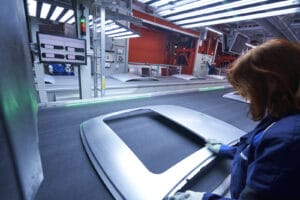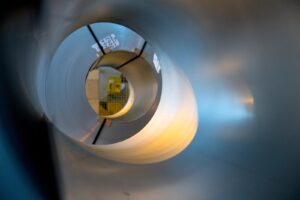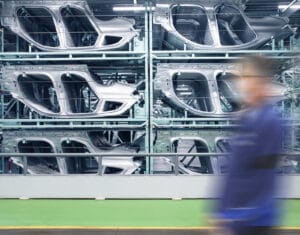
Carmakers the world over are making a push to build vehicles that limit carbon emissions of that contribute to climate change.
BMW is investing in an innovative method for carbon dioxide-free steel production developed by American startup Boston Metal. Going forward, Boston Metal plans to expand the new method for steel production on an industrial scale.
The amount of the investment was not revealed, but it’s being made through BMW Ventures, which was established by the BMW Group to invest in startups in autonomous driving and related mobility companies.
Company investing in new process
“We systematically identify the raw materials and components in our supplier network with the highest carbon dioxide emissions from production,” said Andreas Wendt, member of the Board of Management of BMW AG responsible for Purchasing and Supplier Network.

“Steel is one of them, but it is vital to car production. For this reason, we have set ourselves the goal of continuously reducing carbon dioxide emissions in the steel supply chain. By 2030, carbon dioxide emissions should be about 2 million tons lower than today’s figure.”
The investment is part of the BMW Group’s far-reaching sustainability activities aimed at significantly reducing carbon dioxide emissions across the supplier network, Wendt said.
Even with the dynamic ramp-up of electromobility, steel remains an important building material for car bodies and many components. BMW Group press plants in Europe process more than half a million tonnes of steel per year.
However, the blast furnaces used in conventional steel production generate carbon dioxide.
Startup uses new technology
Startup Boston Metal uses electricity for its new technology, which, by means of an electrolysis cell, produces pig iron that is later processed into steel. If electricity from renewable energies is used for this process, then steel production is carbon free. The young company will build demonstration facilities for this process over the next few years and further develop it for use on an industrial scale.

Boston Metal is a global metals technology solutions company, commercializing molten oxide electrolysis, a patented tonnage metals production platform. MOE provides the metals industry with a more efficient, lower cost, and greener solution for the production of a wide variety of metals and alloys.
The BMW Group established close contact with Boston Metal already last year in the context of its own research activities and through the BMW Startup Garage. The investments by the BMW Group to meet its ambitious targets for the steel supply chain in low-carbon production will become an award criterion in future contracts, the company said.
Commitment to cutting carbon emissions
“It is important to us that our partners are firmly committed to sustainable action and use production technologies with low-carbon emissions,” added Wendt. “The use of green power also has a major impact. We are already working with suppliers who use only green power for the steel they produce for us.”
To protect reserves of raw materials, the BMW Group has set itself the goal of further increasing its percentage of recycled raw materials, so-called secondary material, by 2030 and using raw materials multiple times in a circular economy.
Wendt said all BMW’s steel waste produced at the press plants — for example, when doors are punched out — is either reused through a direct material cycle or sent back to the steel producer via steel traders and processed into new steel.
The use of secondary material reduces carbon dioxide emissions substantially compared to primary material, conserves natural resources and also reduces the amount of energy needed for production.







